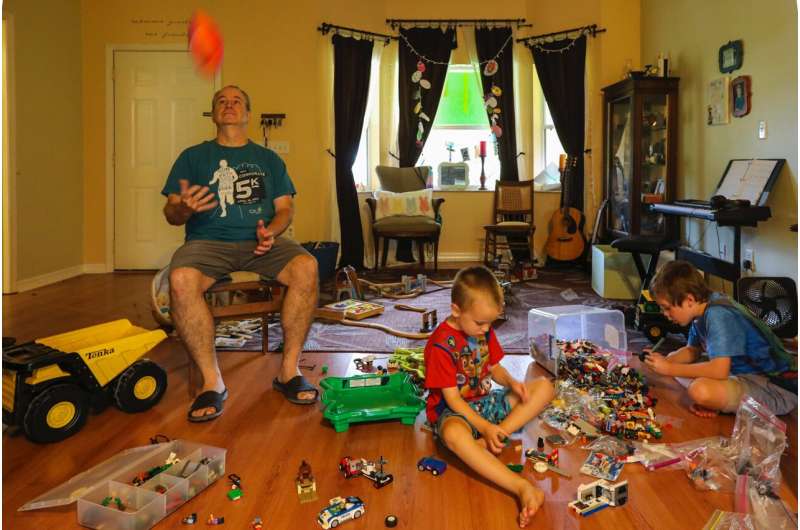This article has been reviewed according to Science X's editorial process and policies. Editors have highlighted the following attributes while ensuring the content's credibility:
fact-checked
peer-reviewed publication
proofread
New study explores the role of caregiver pandemic-related stress in child behavior

Emotional support and tangible aid for caregivers benefited all families during the COVID-19 pandemic, not just those facing higher stress levels, according to a new study. Dr. Brennan and Sara Nozadi, Ph.D., of the University of New Mexico led this collaborative research published in the Journal of the American Academy of Child and Adolescent Psychiatry.
During the COVID-19 pandemic, many families experienced social isolation, economic hardship, and disruptions in daily routines. Communities of color suffered higher infection rates and greater financial hardship and disruption. Researchers from the Environmental influences on Child Health Outcomes (ECHO) Program at the National Institutes of Health (ECHO) wanted to learn how these stressors on caregivers affected their children.
Researchers looked separately at a subset of Black participants, who likely experienced unique discrimination during the pandemic. They found caregiver experiences of discrimination strengthened the relationship between COVID-19 pandemic stress and child behavior problems, specifically those related to anxiety and depression.
The study found that higher levels of support for caregivers were associated with fewer behavior problems overall. On the other hand, higher amounts of stress from the COVID-19 pandemic were associated with more child behavior problems. The findings suggest that support for caregivers positively impacted child behavior across the board, regardless of the specific challenges posed by the pandemic.
"Our research emphasizes the importance of support for caregivers in optimizing child behavior outcomes and promoting well-being during challenging times such as a global pandemic," said Patricia Brennan, Ph.D., of Emory University.
The study focused on nearly 2,000 sets of caregivers and children from diverse racial and ethnic backgrounds at 14 ECHO research sites across the U.S. Most caregivers were either living with a partner or married and had a bachelor's degree or higher education. Caregivers reported on their children's behaviors when their children were between 6 and 18 years old. Among the participating children, 57% were white, 29% were Black, and 9% identified with multiple races.
What happened during the study
From April 2020 to August 2022, caregivers used the ECHO COVID-19 questionnaire to share how the pandemic affected their stress about issues such as money, access to supplies, social distancing, and work. ECHO developed the questionnaire during the pandemic to capture the experiences of families at ECHO research sites.
The researchers used a well-known tool called the Child Behavior Checklist for Ages 6-18 to assess how children behaved. This tool calculated scores for things such as outward behaviors like rule-breaking and aggression, and inward behaviors like feeling anxious or withdrawn. Researchers also studied the support caregivers received. Questions on emotional support measured how cared for and valued caregivers felt, while questions on instrumental support looked at whether they had help available when needed.
More information: Patricia A. Brennan et al, COVID-19 Stress and Child Behavior: Examining Discrimination and Social Support in Racially Diverse ECHO Cohorts, Journal of the American Academy of Child & Adolescent Psychiatry (2023). DOI: 10.1016/j.jaac.2023.07.996




















